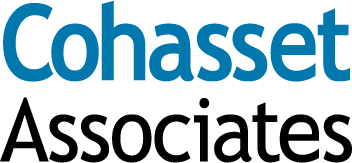Information Explosion: A Look Under the Information Governance Covers
An estimated 2.5 quintillion bytes of data are created every day. The collaboration tools your employees use in the new, work from home environment may be contributing to this growing mountain, whether knowingly or unwittingly. More data translates to increased risk and skyrocketing costs; are you controlling this data explosion?
Many collaboration tools have global settings that are preset “out of the box.” Has your organization defined its strategy and then refined these “out of the box” settings? Has your organization defined a governance council to provide strategic direction to your Information Technology department? Or, is IT left alone to unilaterally change the settings, without a cohesive strategy?
Without a strategy and a plan for information governance in the digital workspace, the volume of information saved and, more importantly, information-related risks, will grow, unbeknownst to your records, compliance and legal departments.
Let's take a closer look at two specific "out of the box" settings that may expose your organization to increased costs and risks.
Meeting Recordings: Most collaboration tools offer options to record a meeting. The final recording may include the audio and written transcript of the conversation. Additionally, by default, all (internal and external) individuals invited to the meeting may have access to the audio recording and receive the written transcript, via email. These features may be enabled by default, allowing all employees the ability to record a meeting, and then automatically emailing the written transcript to all meeting invitees. If the meeting were held in a physical conference room, would your organization allow it to be recorded? Would it allow a meeting transcript to be created and emailed to all invitees? When applying controls to your digital workspace, consider:
Who should be allowed to record meetings? Define the conditions (who and when) meeting recordings are allowed, based on your legal or regulatory environment.
When can a transcript be created, and under what circumstances can it be emailed to all invitees? Examine your organization's rules for written and verbal communications. Determine appropriate guardrails for creating transcripts.
Will work force members know the rules? Develop training, share quick tips and collaborate with the governance infrastructure in your organization to ensure work force members adhere to the requirements.
File Versions: Most collaboration tools retain a copious number of versions and repetitively save versions of the file. Most of these versions are 'unconscious,' meaning that the user does not know they are created. The versions are simply saved by the tool as part of its standard operations. We distinguish these 'unconscious' versions from those that are created intentionally by the user deliberately taking an action. Do you want both 'unconscious' and 'intentional' versions stored and available for the same amount of time?
When are versions important? Is it reasonable to set a version limit? Determine the types of versions (or the circumstances that generate versions) that are important to your organization.
When should outdated versions be deleted? Can deletion of outdated versions be automated? Collaborate on configuration settings that achieve the goal of keeping only those versions that are important to your organization.
As the use of collaboration tools continue to expand, sound governance is required. A clear Information Governance strategy that considers your organization's risk profile and tool capabilities, coupled with an understanding of how employees work, is required to guide tool configurations to meet your legal and regulatory needs while still taking advantage of the expanding capabilities.
Karen Ehrlich is a Principal Consultant at Cohasset Associates, one of the nation's foremost management consulting firms specializing in records management and information governance. For additional information, contact Karen at Karen.Ehrlich@cohasset.com.
